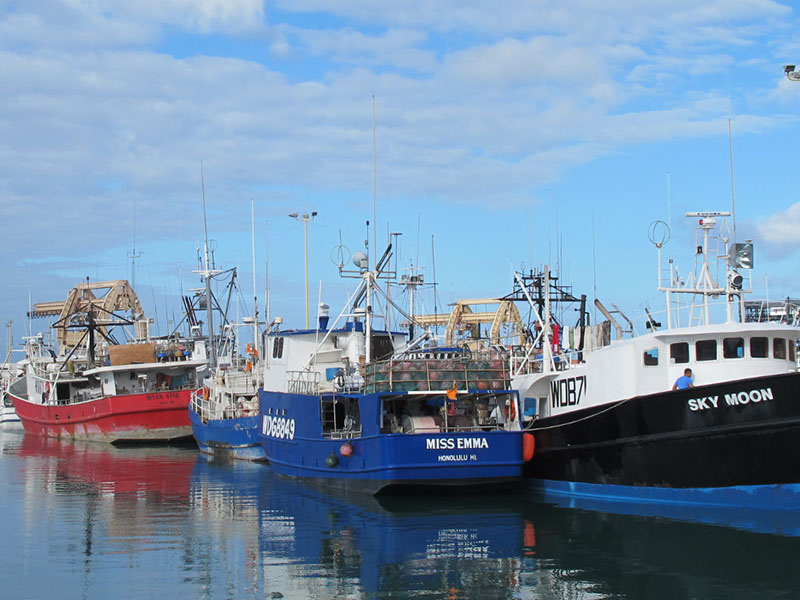A human rights complaint was filed with an international commission in mid-July to investigate ongoing claims of human rights violations in Hawaii’s longline fishing fleet.
The complaint was filed by the Turtle Island Restoration Network, a California-based organization advocates for marine restoration programs and protect endangered marine species and ecosystems, with the Inter-American Human Rights Commission, an autonomous judicial institution that works to protect human rights in the western hemisphere. The U.S. is a member of the organization.
The Pacific Alliance to Stop Slavery and Ocean Defenders Alliance also signed on to the complaint.
The filed complaint asks the commission to determine the responsibility of the United States for human rights abuses against foreign workers in the state’s commercial fishing industry. A 2016 AP investigation revealed hundreds of foreign workers confined to boats fishing for swordfish and ahi tuna in a Hawaii fleet and that a loophole in federal labor laws allowed for poor working conditions.
“It’s simply wrong to turn a blind eye to the human suffering caused by longline fishing in Hawaii,” said Cassie Burdyshaw, the advocacy and policy director for Turtle Island Restoration Network in a press release where she described the fleet working conditions as “slave-like.”
The network describes a variety of abuses that have been reported by workers from Indonesia and the Philippines: being promised a job with a particular vessel but then being transferred against their will to another vessel; physical abuse, such as kicking and slapping; being forced to sleep outside on the deck of a vessel with only a plastic sheet to protect them from wind and water, which made them sick; not being provided adequate protective equipment, such as boots and a raincoat; having such long working hours that they have little time for sleep, causing them to experience injuries and health problems.
Since initial reports and responses from the industry in the following months, little has changed.
“The lack of action taken to address ongoing human rights abuses acts as a tacit approval of slave-like working conditions to provide luxury seafood to wealthy United States citizens,” reads the petition.
Two Hawaii lawmakers introduced measures to create more oversight, but they failed.
The Inter-American Human Rights Commission can make nonbinding recommendations to government officials and policymakers.
The petition asks that if the reported human rights abuses are investigated and found to be true that the United States investigates and punishes the people responsible, makes reparation for the damages caused and makes changes to legislation.







